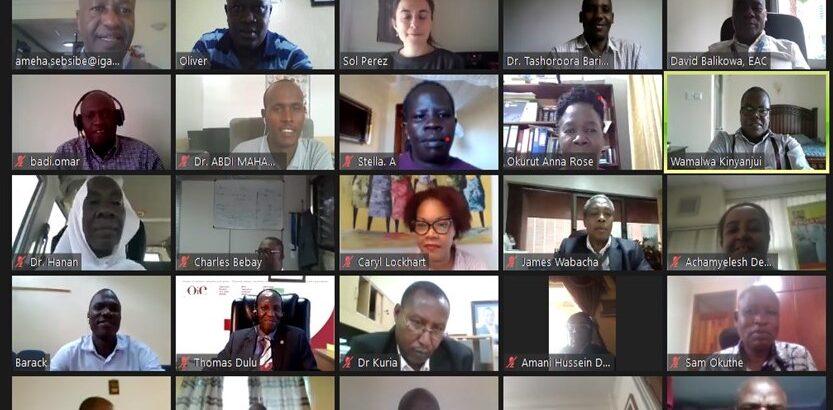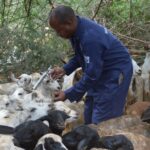ICPALD organized the 10th Annual Eastern Africa Regional Animal Health Network (EA-RAHN) virtual meeting in collaboration with FAO, AUIBAR and OIE. It was held from October 26-27;2020 and financed by FAO/SFE. Animal health surveillance, risk assessment and early warning of potential disease outbreaks all rely on timely information sharing among the key stakeholders. Disease information sharing, among partners involved in public and animal health, helps to ensure that an integrated risk assessment approach is applied to the understanding of pathogen ecologies. Ultimately, sharing of information is key to improving the development of disease control strategies and addressing other public health threats at all levels (local, national, regional and international). To this end, existing national and regional surveillance (epidemiology, and laboratory) systems /networks play a crucial role in gathering quality disease and AMR/AMU data, and providing sound epidemiological and risk interpretation for informed action.
The EA-RAHN brought together the Chief veterinary officers (CVOs), Epidemiologists, and Laboratory Heads, from the 12[1] member countries. It was also attended by technical staff from regional quarantine network and other relevant institutions; IGAD/EAC; AU-IBAR, FAO, and OIE are the members of RAHN Secretariat.
RAHN also provides an excellent platform where scientists and policy makers converge to explore how they can jointly facilitate the implementation of effective and efficient animal health interventions in the region.
Welcome remarks were made by Prof. Ahmed Elsawalhy, Director of AU-IBAR, Dr. Ricarda Mondry representing FAO’s Sub-regional Office for East Africa (FAOSFE), Dr. Samuel Wakhusama, OIE rep Eastern Africa and Dr. SJM Munyua, ICPALD Director. The regional meeting was opened by Dr. Harry Oyas on behalf of the Chief Veterinary Officer, Kenya
The key recommendations included;
- Support capacity building for risk assessment along regional dairy, live animal and meat value chains and strengthen the related veterinary capacities
- Facilitate advocacy for buy-in and resource mobilization to support network activities
- The African Swine Fever has been neglected in terms of policy and legislation and there is need to ensure these areas are strengthened-
- Enhance awareness on biosecurity in the pig value chain from the farm to the fork; and early warning and surveillance
- In Service Applied Epidemiology Training (ISAVET) should be demand driven based on real needs as identified by appropriate assessments and extended to non- GHSA countries[1]
- Need for more training on SPS in all countries in the region to support trade and food safety
- Undertake resource mobilization to operationalize the seven signed cross border MoUs in IGAD MS
- To support MSs of EA to mainstream AW in policies, legislation, investments, programme and projects at national and regional levels-
- Identify and integrate Apiculture and Fisheries/Aquaculture Sector actors in the EA-RAHN
- Promote increased cross border SPS controls (quarantine, inspection, joint surveillance, disease prevention and control for TADs) to reduce non-tariff trade barriers
- Strengthen one health (OH) approach in the Management of zoonoses as well as encourage scientific community in animal health to develop capacity/infrastructure for diagnostics research needed in pathogen identification and sero-monitoring
- Advocate for PPP Framework in the region to promote its use in manufacturing, purchasing and distribution of vaccines and vaccination campaigns.






